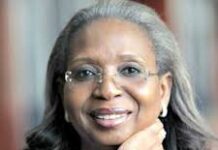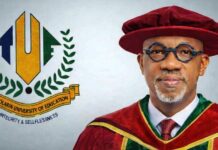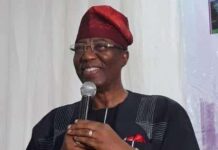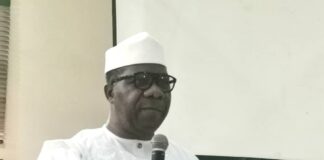The United Nations Children’s Fund (UNICEF) said on Monday that less than 10 percent of young people in Kaduna State knew their HIV status.
The HIV and AIDS Specialist, UNICEF, Kaduna, Dr Idris Baba, made this known in Kaduna at the 2017 World AIDS Day, organised by the Kaduna State Agency for the Control of AIDS (KADSACA).
The activity began with a rally from the Ministry of Health to KADSACA office along Katuru Road, Malali.
Baba said the figure, based on the 2017 data of the United Nations Programm on HIV and AIDS (UNAIDS), also showed that about 160,000 people died as a result of AIDS-related illness in Nigeria in 2016.
He further said that 15 per cent of Nigerian youths of less than 15 years engaged in sexual debut, adding that the development had increased HIV vulnerability among young people.
Baba SAID there was also very low HIV testing rates with only 17 per cent of young people knowing their HIV status in the country, adding that of the figure, less than 10 per cent was recorded in Kaduna State as at 2016.
The specialist also said for various reasons, ranging from gender, biological to socio-economy; young women had a higher HIV prevalence and were infected earlier in life than men of the same age group.
He said that UNICEF had committed significant resources in supporting Adolescent and Young Persons (AYPs) HIV interventions in the state.
“The intervention is ongoing in Igabi, Birnin Gwari, Lere, kagarko, Chikun, Jaba and Jema’a Local Government Areas of the state.
“This is part of our goals of ensuring that 90 per cent HIV positive AYPs know their status, 90 per cent HIV positive placed on treatment.’’
According to him, UNICEF will also ensure that 90 per cent of those on treatment achieve viral suppression by 2020.
“UNICEF has also committed to supporting Kaduna State achieve elimination of Mother-to-Child-Transmission (PMTCT) of HIV by saturating the identified 14 high burden LGAs with PMTCT services.
“The LGAs include: Chikun, Igabi, Jaba, Jema’a, Kachia, Kaduna North, Kagarko, Kauru, Lere, Sanga, Soba, Zangon Kataf, Sabon Gari, and Kaduna South.’’
Baba commended the state government for the successes so far recorded in HIV response in the state, stressing that the state recorded HIV 5.6 per cent prevalence in the state 2001 while the figure increased to 7 per cent in 2007.
He, however, said that following sustained coordinated prevention, the prevalence had consistently declined to 2.2 per in 2014.
Also speaking, the Commissioner for Health and Human Services, Dr Paul Dogo, said that the state’s HIV/AIDS response would remain strong and resilient.
Dogo also said the state could do better by further reducing the burden of HIV, especially among the AYPs population in the state.
Dr Mark Anthony, the Executive Secretary, KADSACA, thanked UNICEF, UNFPA, Society for Family Health, and other development partners for supporting the state’s HIV response in no small measure.
On his part, the Coordinator of People Living with HIV/AIDS in the state, Bala Suma’ila, urged the state government and other stakeholders to carry members of the organisation along in HIV and AIDS response to ensure success.















